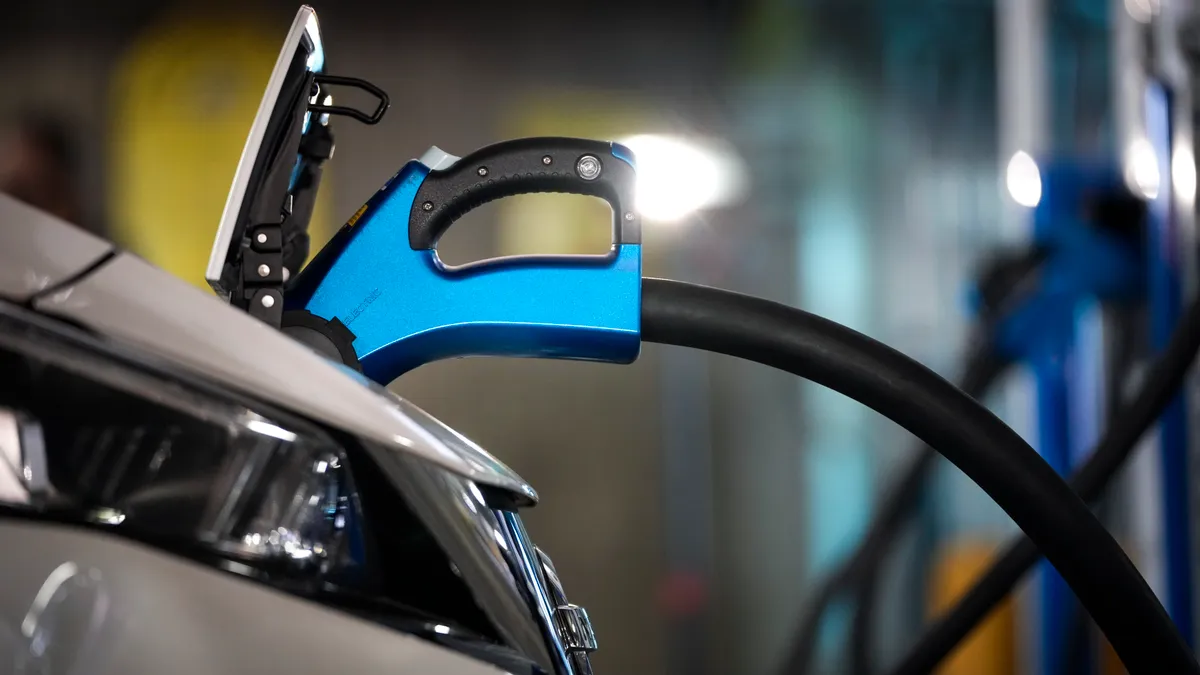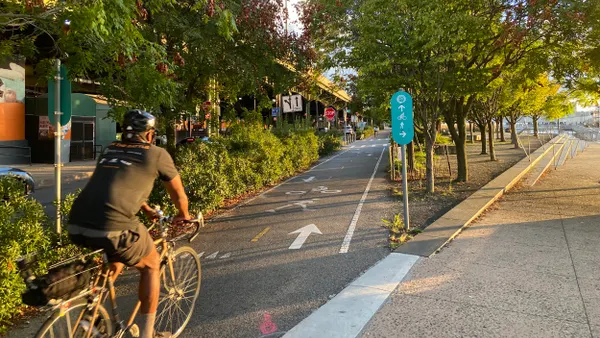The California Air Resources Board adopted regulations Thursday by unanimous vote to mandate that all new sales of light-duty trucks and passenger cars be zero-emission vehicles by the 2035 model year.
Seventeen other states and the District of Columbia are able to adopt California’s standards in lieu of less restrictive federal requirements under the Clean Air Act. If they do adopt the new regulations, the impact of the decision could go well beyond the Golden State.
CARB’s action follows an executive order issued by Gov. Gavin Newsom in 2020 directing the state to end sales of gasoline-powered vehicles, noting that transportation is responsible for more than half of all California’s carbon pollution and 80% of smog-forming pollution. According to CARB, the new regulations, known as Advanced Clean Cars II, will cut greenhouse gas emissions from passenger vehicles by more than 50% in 2040.
“This is a historic moment for California, for our partner states and for the world as we set forth on this path towards a zero-emission future,” said CARB Chair Liane Randolph as she opened the hearing.
In the first half of 2022, EV sales in California exceeded 16% of the market. CARB set intermediate targets for auto manufacturers to meet, beginning at 35% of sales in model year 2026 and increasing yearly.
“It's really important to have not only the end target of 2035, but to have this road map of how we're going to get there that's very much achievable,” said David Reichmuth, senior engineer in the Clean Transportation program at the Union of Concerned Scientists.
Several automakers expressed their support of the regulations, with some caveats:
- General Motors stated it is “committed to emission reductions that are aligned with the California Air Resources Board’s targets,” in a letter to CARB.
- Ford wrote to CARB stating that the “sales curve is aggressive, and cooperative partnerships between vehicle manufacturers and Government will be required to achieve success.”
- Kia Worldwide Senior Manager for Government and Regulatory Affairs Laurie Holmes, speaking at the hearing Thursday, said, “Automakers could have significant difficulties meeting the ZEV targets given elements outside of the control of industry.” She cited “significantly higher material costs, stressed supply chains and sourcing, inconsistent consumer incentives and inadequate charging infrastructure.”
- Tesla Senior Counsel for Policy and Business Development Joe Mendelson, speaking at the hearing, said, “The proposal is both achievable and paves the way for California to lead in electrifying the light-duty sector … Tesla encourages the Board to adopt today the ACC II regulations.”
Allie Gold Roberts, senior director of state policy for Ceres, a nonprofit organization focused on the business case for sustainability, said, “Companies are deeply committed to reducing emissions and their environmental footprint. That is because of the long-term impacts of climate change: the disruptions to their supply chain and the broader trend of sustainability.”
Gold Roberts anticipates that Oregon and Washington will be two of the first states to adopt the new California regulations. Massachusetts established a law this month to follow the California regulations once they are adopted. New York and Connecticut are expected to follow shortly, Gold Roberts said.
“The more states that adopt California standards, the stronger, the bigger impact they're going to have,” said Elaine O’Grady, policy and program director for the Northeast States for Coordinated Air Use Management. “It's going to also lay the foundation for stronger federal standards and also better standards throughout the world.”
O’Grady called out provisions in the new regulations that stiffen warranty and durability requirements and incentivize automakers to help low-income communities access zero-emission vehicles, for example, by providing reduced-price ZEVs for community mobility programs.
In addition to new federal purchase credits for electric vehicles included in the Inflation Reduction Act passed this month, California offers a $7,000 clean vehicle rebate, subject to income limitations. The state also provides incentives for lower-income consumers living in and near disadvantaged communities to trade in their gas-powered cars for hybrid or zero-emission vehicles.
The ACC II regulation also requires manufacturers to reduce tailpipe emissions from gasoline-powered vehicles during aggressive driving and cold starts. California is also preparing new zero-emission regulations for medium and heavy-duty trucks, which are expected to take effect in 2040. CARB is expected to take up the proposed regulation in October.











